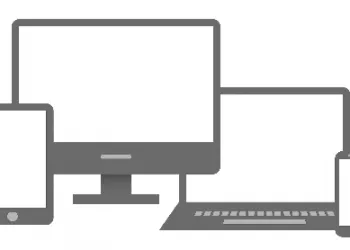A firewall secures your network from malicious hackers, viruses, and malware by blocking suspicious traffic.
You can install a firewall on any device, such as a computer, smartphone, or laptop. Firewalls use destination addresses, protocol, and port numbers to find the traffic that should be allowed or blocked. It allows web traffic from a particular range of listed addresses to pass.
On the other hand, a firewall blocks the traffic from a blacklisted address which can cause malware distribution. Different types of firewalls have different features and levels of security. You need to properly understand these features to choose the right firewall as per your needs.
Without further delay, let’s find out how to pick the right firewall for digital protection.
Good Control and Visibility of your Applications
Port-based firewalls provide limited visibility and control of applications to the end-users accessing your network. As a company owner, you would not like everyone accessing applications like Facebook or YouTube, but with the proper firewall, you can implement policies for certain end-users.
Different firewalls have different policies that can prohibit users from accessing particular applications. But you must ensure that the firewall you pick has good visibility and control.
Protection from Threats
One of the most significant issues that people face is data breaches, so it is important to choose a firewall that can ensure protection from such threats.
If you consider top firewalls such as Sonicwall, you will understand that their primary feature offers protection from threats and data breaches. Therefore, a firewall must be able to analyze how your devices and applications are used to protect your network from end-users.
Modern-day firewalls can control all applications and protect sensitive information on your network. They can reduce the risks of threats by limiting the traffic to your network and only allowing approved applications for use.
Some firewalls also allow you to scan the approved applications to detect a threat. In this way, it can reduce bandwidth consumption which improves the overall performance of your WiFi.
VPN
Your firewall must have a VPN if you are trying to create a secure infrastructure. It hides your IP address and integrates site-to-site encryption, so hackers cannot monitor your activities.
VPN is one of the primary features of a firewall. It keeps your identity secure by connecting you to a VPN server, making it difficult for online scammers and cyber thieves to target you.
Built-in Availability
Another standard feature that you need in a firewall is built-in availability. This feature provides you the option of a secondary firewall. For example, if your main firewall stops working for any reason, the secondary firewall should be able to continue the operations.
If you are a small business organization, you can afford to operate without this feature. But if you are a large enterprise and deal with a large number of customer data daily, then to protect it, you require built-in availability. Even if your primary firewall stops working, built-in availability will prevent your website from dangerous exposure.
Packet Filtering
Packet filtering is another important feature in firewalls that examines each packet of data that passes through the network. It blocks data packets that contain malware or any malicious material from entering your network.
Stateful Inspection
Stateful inspection operates deeply in the network layers to inspect the headers and content of the packets. It ensures that your network is protected and is a must-have feature if you want to deploy a firewall for your business. Also, Stateful inspection monitors the headers and data transmitted across multiple packets.
Good Security Infrastructure
You are creating a complex system if you buy more devices with time. Therefore, you need a firewall that can streamline your network security.
You must ensure that a firewall has good spam filtering, anti-virus protection, and application filtering. These features can ensure foolproof network security so that you can focus on other aspects of your business without any worries.
Scope and Size Considerations
Before picking a firewall, you must know how many users will use it and how many people will be working in your team in the near future. It helps you decide whether a firewall can handle your complex system or not.
There are different types of firewalls that you can consider according to the scope and size of your business. Firstly, you can consider host-based firewalls that only work on a computer-to-computer basis. Every system has its own host-based firewall. These firewalls are low-cost, simple, and flexible to use.
On the other hand, you can consider an enterprise firewall designed for companies with complex networks and plenty of users. These firewalls automatically integrate VPN pathways and have built-in high availability. Also, these firewalls can be costly but offer the highest level of protection.
Conclusion
A firewall is the need of today’s digital era that ensures network protection for complex systems. Every business has an online presence, so using an updated firewall is a must to prevent malicious traffic from entering your network. Features that are mentioned above have their own significance when it comes to choosing the firewall. You need to analyze your budget and needs and make a decision accordingly.
Hopefully, this article will help you pick the right firewall to ensure foolproof digital protection.
















